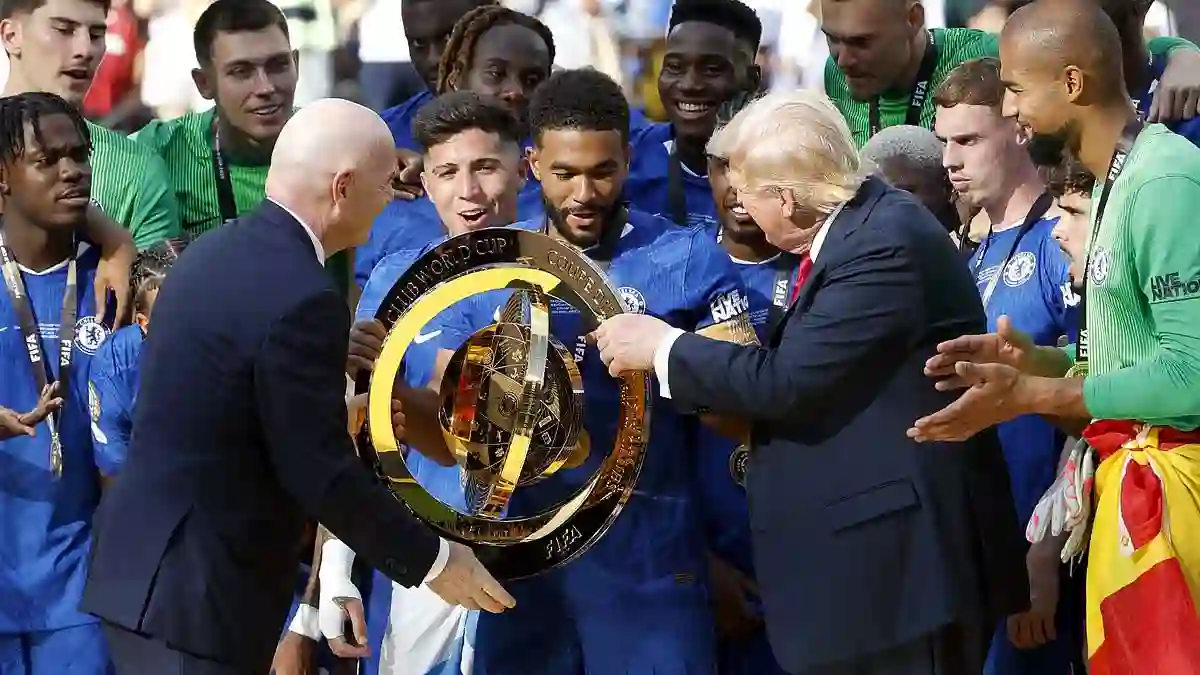Just when it looked like the tension between football’s global governing body and the players’ union couldn’t get any worse—FIFA has gone full throttle, launching an explosive public takedown of FIFPro, accusing them of hypocrisy, grandstanding, and even blackmail.
The gloves are off, and it’s no longer just about player welfare—it’s about who truly speaks for the players.
FIFA Hits Back With Harsh Accusations
FIFA didn’t hold back in a fiery statement released ahead of a major tournament final.
The organization slammed FIFPro for allegedly focusing on media optics over meaningful solutions, saying the union has prioritized self-preservation and personal politics rather than actually helping footballers.
“FIFPro has chosen a path of public confrontation, driven by artificial PR battles,” said a FIFA spokesperson.
“This has nothing to do with protecting player welfare—and everything to do with clinging to personal positions.”
The message was loud and clear: FIFA believes it’s doing more for players than FIFPro ever has.
Player Welfare at the Heart of the Dispute
FIFA pointed to recent reforms it says directly address player fatigue—like mandating at least 72 hours between matches and introducing a minimum three-week offseason break.
These steps, according to FIFA, go beyond what FIFPro has even asked for.
Yet despite those changes, FIFA claimed FIFPro responded with “personal and disrespectful attacks,” accusing them of caring more about appearances than real progress.
The statement continued, “FIFPro’s actions suggest their leadership doesn’t actually care about players, but instead about political fights and their own image.”
Union Left Out of Key Meeting
FIFA held a high-level meeting to address player workload and welfare—but notably, FIFPro wasn’t invited.
Despite being the official global players’ union, representing more than 66,000 men and women worldwide, they were reportedly sidelined from discussions.
Still, FIFA insisted the new measures prove their sincerity and claimed FIFPro’s criticisms are just noise.
FIFPro Fires Back With Serious Allegations
Of course, FIFPro had already drawn first blood.
In statements earlier this month, they accused FIFA of running an “autocratic” operation under President Gianni Infantino and ignoring the basic health needs of players.
They pointed to this summer’s revamped Club World Cup, which took place in extreme heat and finished just 35 days before Chelsea’s next competitive match.
According to FIFPro, that kind of scheduling shows FIFA’s “troubling insensitivity to human rights”—even when elite athletes are the ones suffering.
FIFPro Raises Alarm Over Burnout
Many players have voiced growing concern about the sheer volume of games they’re being asked to play.
FIFPro general secretary Alex Phillips said footballers are afraid to speak out, worried about possible backlash from clubs or federations.
Sergio Marchi, the president of FIFPro, went even further—likening FIFA’s money-first mindset to Roman Emperor Nero’s “bread and circuses” strategy.
He warned there must not be a repeat of this summer’s conditions at the 2026 World Cup, to be hosted across the U.S., Canada, and Mexico.
FIFA Lists Its Reforms—and Throws Down the Gauntlet
In response, FIFA defended its track record, pointing to changes like the introduction of five substitutions and concussion protocols.
According to their spokesperson, those aren’t “vague promises” but real changes that benefit players.
But then the statement took another sharp turn.
FIFA accused FIFPro of hiding behind closed doors and challenged them to publish their internal documents and finances.
“You cannot preach transparency while operating in opacity,” FIFA said, demanding that FIFPro disclose its statutes, funding sources, membership list, and even intellectual property details related to players’ rights.
FIFA Says It’s Ready to Talk—But Only If FIFPro Plays Fair
Despite the public takedown, FIFA left the door open for reconciliation.
They invited FIFPro back to the negotiating table—on the condition they “stop their blackmail,” withdraw their complaints, and become fully transparent about their operations.
“FIFA is committed to placing players at the core of football’s future,” the statement ended.
“But we want real dialogue—not attacks from the sidelines.”
